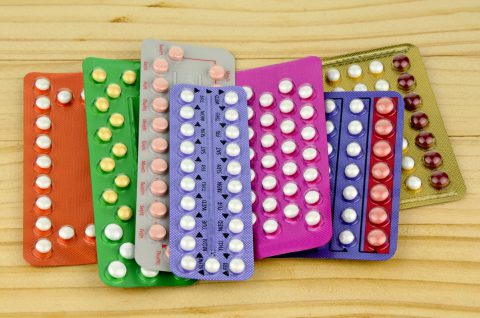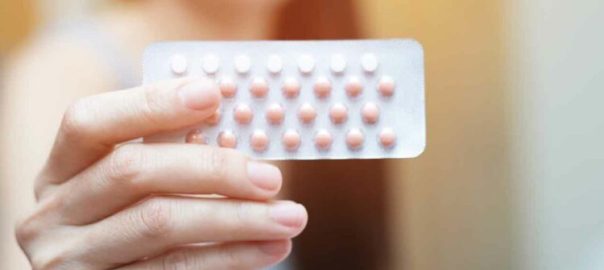Life is full of big decisions for women. One of the biggest is the decision about if, and when, to have children which means most women must make a decision at some point during their life about birth control. Which birth control method to use is often hinged on evaluating a number of things including convenience, cost, and side effects, which got us wondering about the relationship between birth control and oral health.
All women go through stages in their life that involve changes with their hormones. Hormones impact body changes, mood, emotions, appetite, and a woman’s overall health.
Today woman have a variety of birth control methods to choose from all with their own varying levels of hormones and important side effects to consider. These side effects can have an impact on a woman’s overall health, including her oral health! How are they connected? To understand the connection between birth control and oral health, we must first understand how hormonal changes can impact oral health.
How Hormonal Changes Impact Oral Health
Woman need to be more aware of their oral health during certain phases in their life, such as puberty, PMS, pregnancy and menopause. With large fluctuations of estrogen and progesterone in their system, some women will experience gum disease-like symptoms such as swollen or bleeding gums. In fact, the inflammation associated with gum disease can go beyond the health of a woman’s smile – gum disease has been linked to increased risks of heart disease, stroke, diabetes, Alzheimer’s disease, certain cancers and more.
So, just how are birth control and oral health connected?
Birth Control and Oral Health: The Hormone Connection
Because many forms of birth control include hormones, the first month after ingesting the pill has the most profound effect on the body. When large fluctuations with hormones occur, some women will experience gum disease-like symptoms such as swollen or bleeding gums because their gums are more sensitive during this time and may become agitated easier.
The good news is that not all birth control is created equal and the newer pills today have lower levels of estrogen and progesterone than they once did, so the effect of hormones on oral health isn’t quite as severe. However, women who already have gingivitis (the early stages of gum disease) are at a higher risk for gum disease to progress when using hormone based birth control.

Birth Control and Oral Health: Other Factors to Consider
- Smoking: there are links between women who smoke and use birth control. Women who smoke have an increased risk to a number of problems including blood clotting and experiencing dry socket after having a wisdom tooth pulled.
- Medications: some medications can be less effective or have interactions with birth control so be sure to share all medication information with your dentist.
- Time: the amount of time a woman uses hormone-based birth control also increases their risk of gum disease.
While there are many different things for a woman to consider when choosing the right birth control method, making sure oral health is minimally impacted can be achieved by maintaining good oral care practices.

Keep Up With Good Oral Health Care Habits
The best way to keep your mouth, gums and teeth healthy is pretty simple – practice good oral health care habits. With just a few minutes twice a day, a woman can make a simple, positive and effective change to her health. Dentists recommend brushing your teeth twice daily. In addition, use floss and alcohol free mouthwash daily to clear additional bacteria from your teeth and mouth, especially in the harder to reach areas. Between meals, chew sugar-free gum, and schedule a visit to your dentist at least twice a year. At those regular dental check ups, make sure you tell your dentist about any medications, including birth control that you are taking to make sure any required prescriptions do not impact the effectiveness of your birth control.
If you want to learn more about dental hygiene check out our blog.

